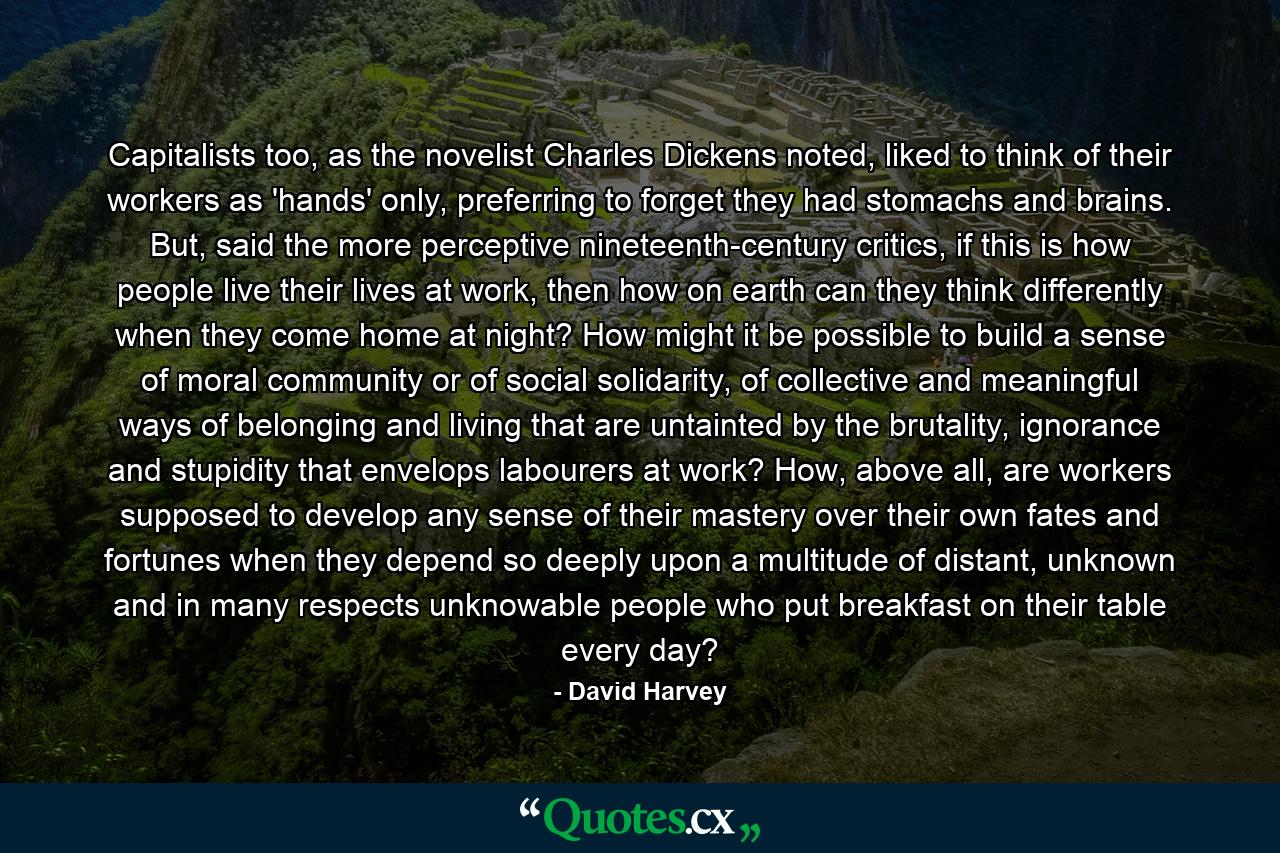Capitalists too, as the novelist Charles Dickens noted, liked to think of their workers as ‘hands’ only, preferring to forget they had stomachs and brains. But, said the more perceptive nineteenth-century critics, if this is how people live their lives at work, then how on earth can they think differently when they come home at night? How might it be possible to build a sense of moral community or of social solidarity, of collective and meaningful ways of belonging and living that are untainted by the brutality, ignorance and stupidity that envelops labourers at work? How, above all, are workers supposed to develop any sense of their mastery over their own fates and fortunes when they depend so deeply upon a multitude of distant, unknown and in many respects unknowable people who put breakfast on their table every day?
